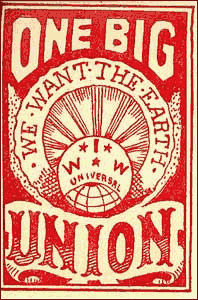Full list of texts
H. Read
The ELF/ALF Arrests
The Issues They Present for Environmental Activists
On December 7, the sudden arrest of six individuals rocked the activist community. All were accused of arsons claimed by the Earth Liberation Front (ELF) and/or Animal Liberation Front (ALF). Since then, the cases have taken many twists and turns: one of those arrested died in custody in an apparent suicide; six more activists were indicted (although three have not been apprehended); then, on January 20, a 65-count indictment against the remaining 11 arrestees blamed them for every major ELF action between 1996 and 2001, with a trial set for October 31. In February, two more activists were arrested and charged with some of the same arsons in Oregon.
Apr 25, 2015 Read the whole text...
Peter Rachleff
The Emergence of a UAW Local
Book review
A review of The Emergence of a UAW Local, 1936–1939: A study in class and culture by Peter Friedlander
There are few books which provide an inside view of the early years of CIO organization, and even fewer of them are as rich as this study. For this reason alone it is well worth reading. Nevertheless, this book is seriously flawed. Yet it is in the flaws themselves that the most important questions arise, questions which must be posed, paused over, and answered. This review is intended to explore these areas, hopefully to stimulate discussion and debate.
Feb 22, 2016 Read the whole text...
Fifth Estate Collective
The Fifth Estate Celebrates Ursula K. LeGuin
“True Voyage is Return”
To honor Ursula K. LeGuin’s 80th year on the planet, the FE’s next edition will explore the intersection of utopian, feminist, ecological, Taoist, and anti-authoritarian ideas in her prolific catalog of novels, poems, and essays.
The centerpiece of this issue will be a reprint of LeGuin’s 1989 essay “A Non-Euclidean View Of California As A Cold Place To Be” featuring a new introduction by John Clark. Clark writes: “LeGuin poses the question of whether our voyage to the elsewheres of the past or the nowheres of fiction can lead us to regain certain lost qualities of mind and abandoned sensibilities, so that we may be once again able to experience reality more intensely, and care about it more passionately, as it manifests itself precisely where we are.”
Apr 8, 2014 Read the whole text...
A.W. Tymowski
The Fifth Estate Essays of Peter Werbe
A perhaps not so tasty solution to the world’s problems
a review of
Eat the Rich & Other Interesting Ideas: Selected Essays by Peter Werbe. Black & Red-Detroit, 2023
“To live outside the law, you must be honest.” B. Dylan, “Absolutely Sweet Marie”
Eat the Rich, a compilation of Peter Werbe’s journalism from the Fifth Estate, demonstrates in formidable detail how he has been getting our attention for the last five decades.
Jan 30, 2024 Read the whole text...
George Bradford (David Watson)
The Fifth Estate Meets the All People’s Congress
Or What’s a Nice Newspaper Like You Doing at a Congress Like This?
A couple of us went downtown to Cobo Hall on a cold Friday night to check out the rally to “overturn the Reagan program” and to pass out a few copies of the last issue to the curious. The rally was being staged by the “All Peoples Congress” all-weekend convention, a left-liberal amalgam; everyone from Dykes Against Racism Everywhere to trade unionists, feminists, Democratic Party hacks looking for a constituency, and leninists looking for cannon fodder. The posters had been all over the city since summer, free bus rides were being offered every fifteen minutes or so from various welfare and unemployment offices, Gil Scott Heron was supposed to perform on Saturday night for a benefit—it had all the makings of a slick, combination carnival and revival meeting. The revival, that is, of the Popular Front to Fight “Reaganism,” led by liberal politicians and trade union bureaucrats and staffed by the minions of the leninist parties looking for a piece of the action. But we had a lot of extra papers lying around turning yellow, and we were starting work on another issue, so we decided to potlatch them out of here and hand them out to the folks who might have taken the free bus ride to go somewhere where it was warm, and to perhaps shake up the true believers with some blasts against civilization.
Jan 1, 2019 Read the whole text...
Fifth Estate Collective
The Fifth Estate Weird Dude Contest
Who Are These Men?

Identify the three weird dudes pictured here and win two free tickets to see the San Francisco Mime Troupe. The winner will be drawn from correct entries received at the Fifth Estate office by October 10th. Send entries to 1107 W. Warren, Detroit 48201. Be sure to include your name and address.
Fifth Estate staff members and former staff members not eligible.
Sep 1, 2015 Read the whole text...
Fifth Estate Collective
The Leviathan
In response to the need on the Left for theoretical discussion of Movement problems, a group of activists have founded a new magazinejournal called Leviathan.
Based primarily in New York and Los Angeles, the magazine will feature in its first issue discussions on the Wallace campaign and the working class, the relationship between corporations and the black community, the political economy of the university and German SDS.
May 2, 2021 Read the whole text...
John Watson
The News Gets Ready
The author is editor-in-chief of Wayne University’s South End newspaper, former editor of the Inner City Voice and is an employee of the Detroit News.
Within the last four months, the management of the Detroit News has turned the News printing plant, located on the corner of Third and Lafayette, into a fortress.
Apr 3, 2021 Read the whole text...
People Against Racism
The News—White Man’s Paper
“Along with the country as a whole, the press has too long basked in a white world, looking out of it, if at all, with white men’s eyes and a white perspective.”
—Kerner Report, p. 389
Although the media’s coverage of the New Bethel incident has been at best confusing and at worst rampant with racial hysteria, it is not exceptional.
Jun 16, 2022 Read the whole text...
Walker Lane (Peter Werbe)
The Empire Exits Iraq
When President Barack Obama announced on October 21 that the nine year U.S. invasion and occupation of Iraq was ending, it didn’t even make first spot on many news reports. Another imperial slaughter had ground to an end, with many liberal publications, such as The Nation, declaring it an “ignominious end to a shameful debacle.”
Oct 13, 2013 Read the whole text...
anon.
The Empire Strikes Back at Itself
Media hoopla commemorating the Quincentennial of Christopher Columbus’s first voyage to the New World, however sanitized, should have convinced anyone paying attention that the Spanish conquest was a disaster for both Native Americans and Africans.
Newspaper, magazine, and television celebrations of the 1492 “discovery” have paid scant attention, however, to its effects on Europeans themselves. The unspoken assumption is that the Americans’ and Africans’ loss must have been Europeans’ gain, that all that misery, destruction, and death in the New World must have benefited people in the Old.
Mar 4, 2020 Read the whole text...
David Watson
Ali Moossavi
The Empire’s War Was Averted
What Will We Do About The Peace?
By last count, 1.5 million Iraqis, one million of them children under five, have died as a result of the U.S./U.N. sanctions, either through starvation or from lack of medicine for easily curable diseases. People are dying at a rate of about 11,000 a month, and some four million more are on the verge of starvation. In the seven years since the 1991 Gulf War’s intense and devastating bombing campaign, Iraq has become the international oil economy’s extermination camp.
Feb 4, 2016 Read the whole text...
Fifth Estate Collective
The Sun
Love Affair With Cops
The power groupies at the Sun have recently changed their focus. After running out of tin horn politicians to do interviews with, the Ann Arbor transplant has taken to promoting the police—something even the Detroit News and Free Press have had problems doing lately. The Sunites would have us believe that the brutal, dope pushing DPD has become “A New Breed of Cop” as their mid-May, littered front page blared.
Aug 8, 2015 Read the whole text...
Anti-Authoritarians Anonymous
The Enchantment of Nuclear Destruction
The possibility of total destruction through nuclear war corresponds to a condition of ruin everywhere that makes such destruction attractive. And in the absence of opposition that contests everything about the existing social order, only the eruption of nuclear war can be expected to put an end to our present flattened lives.
Oct 11, 2019 Read the whole text...
Jesse Cohn
The End of Communication?
The End of Representation? *
As long as we’re on the subject of endings--or rather, the rhetoric of “the end”--I’d like to intervene in the ongoing conversation about what Roger Farr recently referred to in these pages as “the end of an era,” i.e., the era of anarchism as a “communicative” project (“Anarchist Poetics,” Fifth Estate #373, Fall 2006).
Dec 15, 2014 Read the whole text...
Daniel Pinchbeck
The End of Money
The current economic crisis may be another bump on capitalism’s always dizzying terrain, or it may signal epochal changes
The crisis of the financial markets has taken on gargantuan proportions.
This spring saw the emergency sale of Bear Stearns, the fifth-largest financial institution on Wall Street, to JP Morgan for a paltry sum by “Master of the Universe” standards, including its flashy corporate headquarters and thousands of employees. Even this sale only came about because the US Federal Reserve agreed to cover the risks of exposure to creditors, pushing the financial costs onto US taxpayers. Despite this bailout and other interventions in the supposed “free market,” the financial system is still reeling. Credit liquidity has disappeared, causing shockwaves in student loans and other areas.
Aug 1, 2014 Read the whole text...
Sandor Ellix Katz
The End of Sexuality and Other Apocalyptic Scenarios
From The Revolution Will Not Be Microwaved, Chelsea Green, 2006
Can any action avert humanity’s technological downfall? I try to remain hopeful and cast my lot with the possibility of change, but our situation and prospects both appear rather bleak. So many nightmare scenarios have been imagined for us. Science fiction anticipated genetic tinkering generations before the technology existed to actually do it. The dangers I have just briefly described are very real. Yet I find that every new revelation seems strangely familiar, as if we had been expecting it. Each sensational news report seems like it must have come from science fiction.
Apr 1, 2015 Read the whole text...
Bob B.
The Euromissile Demonstrations & The Fate of the Earth
When millions of people fill the streets of Europe to protest the nuclear arms race, as occurred the weekend of October 22, 1983, only those most pessimistic about our prospects will fail to sit up and take notice. Whatever their shortcomings, the massive demonstrations against the installation of cruise and Pershing II missiles on European soil are an indication that human beings have not completely succumbed to the death instinct. And despite the fact that the demonstrators have failed in their objective to halt the Euromissiles, it is arguable that they will continue undeterred, and in perhaps more creative ways, to oppose the nuclear state.
Dec 23, 2019 Read the whole text...
M.K. Shibek
The Exploding Rose
Surrealism in Portland
I first encountered André Breton’s surrealist manifestoes as a young anarchist in the late ‘80s, and was attracted to the ideas within.
Surrealist poetry had a familiar resonance: I recognized how psychic automatism existed in my own experience. The quality of that expressive revelation reminded me of how long sentences, scenes and pictures would unfold before me, independent of conscious direction, as I was near sleep. Breton even mentions such hypnagogic phenomena in the first manifesto. But I had no idea anything like a surrealist movement still existed until I saw a review of Arsenal: Surrealist Subversions in a midwestern anarchist publication.
May 16, 2021 Read the whole text...
Bob Heilbroner
The face of the enemy
or is it?
(Liberation News Service) The New York Daily News says these are our real enemies—the good wholesome American kids who hate beatniks and commies and unpatriotic draft dodgers.
They are the healthy kids, the good solid backbone of America who will hold the country together, who will not succumb to the creeping decadence which seems to have a frightening, unexplainable hold on so many of our young.
Sep 23, 2021 Read the whole text...
Norma D. Kotomy
The Failure of Non-violence
Book review
a review of
The Failure of Non-violence: from the Arab Spring to Occupy by Peter Gelderloos, Left Bank Books, Seattle, 2013, 306pp. leftbankbooks.bigcartel.com
Peter Gelderloos’s The Failure of Nonviolence is a thought-provoking invitation to authentic debate.
This kind of discussion is especially relevant for those of us who welcome the recent worldwide social insurgencies, and are not committed to pacifism as an ideology. The book focuses on tactics and strategies used by social movements, and encourages critical debate about defining success and evaluating which struggles have been successful and which ones have not.
Oct 20, 2014 Read the whole text...
Mike Wold
The Failure of Resource Nationalism in Bolivia
a review of
Blood of the Earth: Resource Nationalism, Revolution, and Empire in Bolivia by Kevin A. Young, 2017, University of Texas Press
Kevin Young’s Blood of the Earth examines the period of Bolivian history after the country’s 1952 revolution, in which the Nationalist Revolutionary Movement (MNR) was able to overthrow the ruling military government with the help of popular militias led by factory workers and miners.
Sep 25, 2019 Read the whole text...
Margaret Killjoy
The Fall of Ekset City
Fiction
Ekset City was on fire. Flares and napalm and hammers and bullets and the angry minds of angry men were tearing through three hundred years of architecture and three thousand years of culture. At the center of the city, a bonfire engulfed the seven pillars of Ekset. A frightful horde of humans paraded through, warming their hands on the pyre of victory and sacrificing every trace of goblin culture to the consuming flames. Black smoke rose up so thick and high it fought against the glory of the sun.
Mar 27, 2015 Read the whole text...
David Watson
The Fall of the 500-Year Reich
1492–1992
“How can the spirit of the earth like the White man?...Everywhere the White man has touched it, it is sore.”
—a woman of the Wintu tribe (California)
Among the many places too numerous to name that have been defiled and destroyed by western civilization, there is a mountain in a place called Arizona, a mountain called Dzil nchaa si an (Big Seated Mountain) in the language of the earliest known human inhabitants, Mount Graham on modern maps. This is the abode of the Spirit Dancers (Ga’an), who taught the Apaches their sacred songs and dances. It is the highest peak in the Pinaleno Mountains, situated at the meeting place of four biotic zones—the Chihuahuan and Sonoran deserts and the Rocky Mountain and Sierra Madre forests.
Jan 28, 2020 Read the whole text...
Allen Ginsberg
The Familiar Presence
Editors’ Note: The trial of the Chicago Conspiracy 7 is a trial of one consciousness by another. On December 11, Allen Ginsberg, poet and man of the planet, came to Julius Hoffman’s courtroom to speak in behalf of Abbie Hoffman, Jerry Rubin, and the Yippie Festival of Life that fell before police clubs in Lincoln Park and on Michigan Avenue last August at the Democratic Convention.
Jun 8, 2023 Read the whole text...
A. R.
The Family
Institutions of Repression, Part 1
She meant well, most all do. And she did a fine job, under the circumstances. And that’s exactly what it was, a job, like any other. Underpaid, understaffed, boring. She put off all compensation for her later years. “A child saved is a child earned.” Like insurance, but with no guaranteed premium. And she wonders now, that most of her children have departed, what she has to show for it all.
Jan 2, 2014 Read the whole text...
Fifth Estate Collective
The FCC is Watching You
The Federal Communications Commission (FCC), prompted by a 58-year-old commissioner who is a former FBI agent, issued a policy statement on March 6 warning radio stations against broadcasting song lyrics “tending to promote or glorify the use of illegal drugs.”
The dictum—based on an unspecified number of complaints the FCC said it has received about several songs—has angered and bewildered Detroit area FM and AM rock stations.
Jul 14, 2025 Read the whole text...
Fifth Estate Collective
The FE at 50
Fifth Estate celebrates a half century of radical publishing

This edition of the Fifth Estate marks the 50th anniversary of its publishing, with much of the celebrations occurring in a manner we never anticipated. There are exhibitions at two prestigious Detroit museums, a jammed packed dance/ concert with hundreds in attendance featuring The Layabouts, an anarchist rock/ska band, talks to the Detroit Press Club, radio and TV coverage, art and political workshops and panels at the museums, and tours with university classes and other groups at the museums which are selling Fifth Estate t-shirts. Whew!
Dec 23, 2015 Read the whole text...
Fifth Estate Collective
The FE Bookstore
The FE Bookstore is located in the same place as the Fifth Estate Newspaper, both of which are located at 4403 Second Ave., Detroit MI 48201—telephone (313) 831–6800. The hours we are open vary considerably, so it’s always best to give us a call before coming down.
HOW TO ORDER BY MAIL:
1) List the title of the book, quantity wanted, and the price of each;
Feb 16, 2019 Read the whole text...
Ody Saban
The Feminine Letter
Source of Ecstasy
This story begins in the middle of a long night. I had been reading a tale in which the noted storyteller Baal Shem Tov appears and this was a dream I had in response to this reading.
A Jewish orphan born in Poland in 1698, Baal Shem Tov was a legendary personality of the heretical, Hassidim movement who sublimated in acts and words the aspirations of the medleant and wandering Jews.
May 16, 2021 Read the whole text...
Fifth Estate Collective
The FE Speaks with Detroit’s Radical Judge
The election of Justin Ravitz to a seat on Recorder’s Court came as no surprise to most Detroiters who had watched the campaign, and had seen Ravitz’s clear-cut lead in the spring primary.
Ravitz, 32, came into the election campaign with a long list of credentials as a proponent of radical change:
Dec 10, 2025 Read the whole text...
Harvey Ovshinsky
The Fifth Column
Paul Krassner, editor of a magazine of free thought, criticism, and satire, called The Realist, was in Detroit last month. In his “Evening with A Self-Styled Phony,” Krassner turned people on to what turns him on. The Realist, for example:
“I wake up every morning and I giggle: I’m the editor of The Realist ha-ha-ha. It really is strange because I’ve been doing it for eight years now and I really haven’t accepted that fact. If I walk past a store and it says ‘boy wanted,’ I stop—I say ‘maybe I can still get the job.’ I really don’t relate to this—you know what it’s like; working, you know, not going to a job, it’s like playing hooky all day long. I mean you can go to an afternoon movie and you don’t get in trouble. I have a secretary to take the calls while I’m gone. It’s very strange, you know, just putting out a magazine and not getting paid for it.”
Feb 19, 2023 Read the whole text...
Mike Kerman
Bob Fleck
The Fifth Estate Interviews
Mayall
John Mayall is one of the most respected white musicians playing the blues today. While the blues are popular and being utilized by many pop musicians who are good copyists and technically proficient, there are few original or innovative performers.
Mayall, who has been playing the blues since 1963, has released seven albums. He is serious about the music and is no longer interested in performing good imitations of black bluesmen. Instead, he has developed a personal and unique style.
Jun 14, 2022 Read the whole text...
Fifth Estate Collective
The Fifth Estate (masthead)
A Newspaper of Detroit

EDITORS
Harvey Ovshinsky
Peter Werbe
EDITORIAL ASSISTANT
Cathy West
CIRCULATION
Tommye Wiese
NEWS EDITOR
Alan Gotkin
MUSIC EDITORS
Tony Reay
John Sinclair
OFFICE MANAGER
Debbie Quigg
PHOTO EDITOR
Mike Tyre
ART DIRECTION
Blallen
ADVERTISING
Gunnar Lewis
CALENDAR
Resa Jannett
DISTRIBUTION
Jul 20, 2015 Read the whole text...
Fifth Estate Collective
The Fifth Estate Underground Bookstore
Underground newspapers, books & magazines & records & posters
buttons & bumperstickers
all kinds of things you need
ESP RECORDS!! The FUGS Broadside album — the FUGS second album — Timothy Leary Speaks on LSD Albert Ayler Spirits Rejoice! New York Ear & Eye Control
Patty Waters Sings!
Marion Brown Quartet!
Feb 25, 2024 Read the whole text...
Karen Knorp
The Fifth Horseman is Fear
Film review
“The Fifth Horseman is Fear” is a relevant work of art. It is relevant in all its parts, almost in spite of the fact that it deals with Nazism in occupied Czechoslovakia. Its statement is relevant in the way that any statement about fear is particularly and personally relevant in our time. It is a work of art in the true sense, as it engages the viewer in a cathartic experience and involves him actively in its own transformation.
Aug 8, 2019 Read the whole text...
Frank Joyce
The Fight
While Cleaver and Newton punched it out for the white media—to the confusion of black and white alike, Mohammad Ali and Joe Frazier did it for the white bankers, and the entertainment of black and white alike.
Mohammad Ali wore red trunks. Joe Frazier wore green. For forty-five full minutes, the Red and Black and Green slugged it out in front of $20 million dollars worth of fans.
Jul 19, 2025 Read the whole text...
Natalie Shapiro
Gary Macfarlane
The Fight to Save Cove/Mallard
Jack Squat and the Giant Pink Bunnies in Central Idaho
Deep in the wilds of central Idaho is a wild bunch of pissed-off people. No, not militias! We’re people resisting the destruction of one of the last untouched forested areas in this country.
Welcome to Jack Squat, summer 1996, the year activists reclaimed a logging road in the contentious Cove/Mallard timber sale area. Visitors gawked when they approached the Jack Creek logging road in July.
May 8, 2018 Read the whole text...
Fifth Estate Collective
The Film Phantasmagoria
High Camp at Lower DeRoy
WHILE BRAVE MEN DIE had its Detroit premier on Saturday September 10. Sharing the bill at lower DeRoy Auditorium was OPERATION ABOLITION, a right-wing expose of communists in the peace movement. As expected, the entire evening of film phantasmagoria was an exercise in high cinema camp and low grade stupidity.
Apr 25, 2023 Read the whole text...
Mike Kerman
The Flying Burrito Bros.
A few weeks ago the Flying Burrito Brothers brought their electrified, rockified country style music to the Grande Ballroom and the good folks responded with a silent Bronx cheer.
They wanted something familiar to vibrate their nervous systems, but the Burritos responded with soft, but apparently unsoothing country rock.
May 23, 2022 Read the whole text...
Michael Gurnow
“The Folly of Beginning a Work Before We Count the Cost”
Anarcho-Primitivism in Daniel Defoe’s Robinson Crusoe
“You don’t own property; property owns you.”
--B. Traven (Treasure of Sierra Madre)
Anarcho-primitivism states that humanity’s problems began once we abandoned our hunter-gatherer lifestyle in favor of an agrarian one. By contrast, our new sedentary way of life leads to social stratification and overpopulation due to a division of labor and food commodities being produced to the point of surplus.
Jan 30, 2014 Read the whole text...
Cara Hoffman
The Food Court at Guantanamo
Philosophers Discover Thousands of Miles of Intellectual Dead Zones Caused by American Cultural Practices
The release of several reports this fall concerning environmental collapse has introduced us to a new and powerful way to discuss nature, one that we may have overlooked in our concern for life.
The destruction of the natural world, as it turns out, is going to be expensive. No, silly, not like you’re thinking--loss of human and animal lives, loss of culture, loss of pleasure, loss of hope. Not those expenses. I’m talking about money.
Feb 28, 2015 Read the whole text...
Francesco Dalessandro
The Forgotten Anarchist Commune in Manchuria
Where World War II Began
During World War II the famous Hollywood filmmaker Frank Capra was commissioned by the U.S. Military to make a seven-part documentary film series titled “Why We Fight.” Its purpose was to counter Nazi propaganda films and justify U.S. involvement in the war to soldiers and civilians.
The first film in the series, “Prelude to War,” locates the origin of the conflict in the Japanese invasion and conquest of Manchuria in 1929 through 1932. But there were less known equally significant goings on in Manchuria that the film does not present. These have also been left out of most books and articles covering the history of the area.
Nov 13, 2020 Read the whole text...
Marlene Tyre
The Fort Hood Three: An American Tragedy
“Conscience is a costly thing, and I am paying dearly for the rights to my mind. Five years a cement wall and cold iron bars... is the price I am paying for real freedom. If it must be this way, I accept it gladly, knowing that the satisfaction, the pride and the honor I am feeling because of my actions will bring me through, whatever punishment my master’s hand down on me.”
Mar 24, 2024 Read the whole text...
E.B. Maple (Peter Werbe)
The Free
Book review
a review of
The Free by M. Gilliland. Hooligan Press, 142 pp., London, 1986, 1.80 pounds, $4.00 (U.S.)
The Free is a short, quick-paced novel about insurrection and revolution, its eventual defeat and the repression which follows. Although the quality of the prose is a bit ragged in parts, it is powerful and real enough that witnessing the dreams of the central characters first realized and then dashed creates a mood of utter despair by book’s end.
Nov 3, 2020 Read the whole text...
Fifth Estate Collective
The Free U.
The Free University at Wayne State is beginning its second term and is looking for students and professors.
Anyone can attend and the only qualifications necessary for teaching-age that you have something to profess and can get people to sit through your class.
The Free University is a community project begun by Open City and has a catalog of classes available from the Open City Office, call 831–2770 for more information.
Jul 26, 2019 Read the whole text...
Fifth Estate Collective
The Freeze--Too Little, Too Late
Pentagon War Plans on Automatic
Recently, an anti-nuclear protester in Washington state, after seeing the nuclear freeze banners which he and his friends had spread across the tracks shredded by the oncoming train carrying nuclear warheads, was asked by a radio reporter what his feelings were.
As the train barreled along nearby blowing its whistle, he answered, “Fear, I guess, first; we could be shot by sentries for getting too close to the train. Also it’s a humbling experience being so close to so much destruction.”
Jun 27, 2015 Read the whole text...
Peter Gelderloos
The Function of Prison
In November, 2001, I was arrested protesting at the School of the Americas in Fort Benning, Georgia. I received a six month sentence the next July, eventually seeing the insides of three Georgia county jails, a federal maximum security transit center, and a minimum security federal prison camp. At my politicized trial, the prosecutor knew I was an anarchist, and it was because of this, and because I openly criticized the judicial system, that I got the maximum sentence despite being a first-time offender.
Jan 6, 2017 Read the whole text...
Marc Kadish
The Further Adventures of Tom Sincavitch
Editors’ Note: Marc Kadish is Mid-West organizer for the National Lawyer’s Guild and is active in Detroit with the National Organizing Committee (NOC).
Fort Riley is a sprawling Army base located between Manhattan and Junction City, Kansas about 200 miles from Kansas City.
Included among the 15,000 GIs on the base are approximately 3,000 soldiers who are being “rehabilitated” at the Correctional Training Facilities. If they don’t get rehabilitated they get shipped to the Army Disciplinary Barracks at Fort Leavenworth.
Jun 26, 2022 Read the whole text...
Jesús Sepúlveda
The Future is Now!
In Spain’s Basque Mountains, anarchists explore earlier forms of community solidarity & mutual aid to design human scale intentional communities.

Sales Santos-Vera and Itziar Madina-Elguezabal live in the heart of the Basque Mountains, where the borders between France and Spain are blurred and the mists hide the paths once serving smugglers and antifascist guerrillas. Sales moved here from Extremadura along with his family as a boy.
Jan 1, 2016 Read the whole text...
Eric Laursen
The Future Is...Written?
Predicting societies sliding into chaos
a review of
End Times: Elites, Counter-Elites, and the Path of Political Disintegration by Peter Turchin. Penguin Press, 2023
Historian Arnold J. Toynbee once insisted that history is not “just one damn thing after another.”
Joe Strummer, lead singer of The Clash, once insisted that, “The future is unwritten.”
Nov 5, 2024 Read the whole text...
Mars Z. Goetia
The Game of not Seeing the Game
How do we deal with power relationships within anarchist communities?
“They are playing a game. They are playing at not playing a game. If I show them I see they are, I shall break the rules and they will punish me. I must play their game, of not seeing I see the game.”
—R.D. Laing, Knots
I remember sitting in a circle, making tough decisions about how to respond to a community conflict that had escalated to the point of physical violence. It was a heated discussion. None of us knew what the fuck we were doing. We were angry. We were scared. No one wanted to be wrong.
Dec 16, 2017 Read the whole text...
John Clark
The Geography of Possibility
Simon Springer on the Spaces of Liberation
a review of
The Anarchist Roots of Geography: Toward Spatial Emancipation by Simon Springer. University of Minnesota Press, 2016
Anyone who wants evidence that anarchist geography is alive and well today need only read this book. The author, Simon Springer, is one of the most active anarchist intellectuals today. In 2016, he authored two books and edited five, mostly on anarchist themes, and he has written numerous articles, some technical, but many deeply immersed in contemporary struggles.
Jan 2, 2018 Read the whole text...
Steve Slavin
The Girl Who Would Stop Time
One, two, three, four, we don’t want your fuckin’ war!
Again and again they chanted the couplet as they slowly made their way downtown along New York City’s Fifth Avenue, and then crosstown on 42nd Street to the United Nations. There, they would hear Martin Luther King and several other luminaries express these same sentiments against the Vietnam war, albeit in somewhat milder language.
Feb 8, 2016 Read the whole text...
James C. Scott
The Golden Age of the Barbarians
Excerpt from Against the Grain: A Deep History of the Earliest States
James C. Scott has written extensively on how people have transitioned from tribal societies to civilization as part of the process of state formation, and how resistance to state domination has occurred in this context.
In Seeing Like a State: How Certain Schemes to Improve the Human Condition Have Failed and The Art of Not Being Governed: An Anarchist History of Upland Southeast Asia, he explores tools for state control of subjects, such as permanent last names, standardization of Language and legal discourse, regularized weights and measures, records of numbers of people and wealth in land and other property, as well as the design of cities and transportation.
Dec 4, 2017 Read the whole text...
Fifth Estate Collective
The Grate Society Performs at WSU
Is a speeding automobile more beautiful than the Winged Victory? Is Dionne Warwick’s “Are You There?” greater than the Ninth Symphony? The Grate Society, a small group of Ann Arbor composers and performers think so. They will be in Detroit on Friday, May 19 presenting a program of musical works and “total theater events” for Wayne State’s Friday Night Coordinating Committee.
Apr 22, 2017 Read the whole text...
Fifth Estate Collective
The Great Bathroom Incident
The trial of the Conspiracy 7 continues in Chicago
Editors’ Note: The trial of the Conspiracy 7 continues in Chicago and has turned into even more of a circus as the defense attempts to present its case. They are blocked at every avenue by senile Judge Julius (Magoo) Hoffman, who sustains every prosecution objection and denies every one that comes from the defense table.
Jun 28, 2023 Read the whole text...
Richard Dey
The Great Comic Convention
Attendance at the 2nd Detroit Triple Fan Fair the weekend of June 17 and 18 peaked at approximately 150 and audience enthusiasm burned with a hard, gem-like flame, despite program changes and setbacks.

The purpose of the Fair was succinctly set forth: “To preserve rare material and to further the appreciation of Comic Strips, Films, and Fantasy Literature as genuine Art Forms.” Many fans at the Park Shelton Convention were therefore rather testy about the illustration from former EC artist Wally Wood’s Witzend, which accompanied my earlier pre-Fair article in a recent Fifth Estate. The panel depicted Wood’s Animan defrocking a stacked lovely. When I mentioned that he had drawn the pornographic centerfold (Orgy at Disneyland) in the current Realist, Wood’s stock sank even lower at the dealer tables.
Feb 12, 2017 Read the whole text...
Fifth Estate Collective
The Great Reefer Raid
The Way It Really Was
On Tuesday night the 24th of January 56 Detroit citizens were arrested and held at least overnight in the City Jail. Most of these arrests—43—were entirely illegal and unconstitutional, and there is considerable doubt as to the legality of the arrests of the 13 people who were subsequently charged with selling and / or dispensing (giving away), and/or possessing, varying quantities of marijuana.
Apr 9, 2025 Read the whole text...
Wilmot
The Green Berets Play War in Detroit
Sept. 11th the Green Berets came to town.
They got together for a little show at the foot of Woodward, about two dozen of them in the bright sunshine. Maybe 150 Detroiters turned out to see the military elite, vaunted in press and song.
The first thing that struck the viewer was their youth. They looked for the most part barely two and three years out of their teens. Young faces for the most part, smooth, unwrinkled and without real worries.
May 4, 2023 Read the whole text...
Fifth Estate Collective
The Green Scare Goes On
...a punitive campaign to bring outrageous sentences
The Green Scare continues with the plea-bargain and imprisonment of Fifth Estate writer Marie Mason, three new arrests in Wisconsin, grand jury appearances by activists Kevin Tucker and already-imprisoned Daniel McGowan, and the sentencing of Briana Waters.
The “Green Scare” refers to a series of recent arrests of earth and animal liberation activists (and the ongoing investigation and intimidation of the same) who have engaged in acts of property damage in which no one was hurt. The arrests have been marked by outrageous charges (activists often face life in prison), as well as the public and legal labeling of these acts as “terrorism.”
Jun 18, 2014 Read the whole text...
anon.
The Green Scare Rolls On
Besides the sentencing of Marie Mason, there have been developments in a number of other Green Scare cases in the Midwest and beyond.
The Rhinelander case has affected a number of activists. Five hundred genetically-modified research trees were destroyed at a federal research facility in Rhinelander, WI in 2000. Activist-turned-government-collaborater Ian Wallace pled guilty in October 2008 to this action, as well as an attempt to damage two buildings at Michigan Technological University. In March 2009 he received three years.
May 7, 2014 Read the whole text...
Fifth Estate Collective
The Gulf War
Lies, Lies, More Lies
The intricate web of lies fielded by the U.S. to hide the real reasons for its 1991 attack on Iraq has been further exposed (see Spring and Summer 1991 FEs for earlier disclosures). Realizing that the American people would not support a war to protect Persian Gulf oil profits, President Bush contrived a hobgoblin, depicting Saddam Hussein with a nuclear bomb. He presented this as an imminent threat and the reason why the war had to be prosecuted immediately rather than waiting for slower-acting sanctions. Now we find hidden away in the pages of the May 20, 1992 New York Times was the information that an international gathering of nuclear weapons designers had concluded, after looking at all the available evidence, that Iraq was 3 to 5 years away from developing a bomb and may even have faced insurmountable obstacles.
Feb 4, 2020 Read the whole text...
Kate Ennals
The Hangover in New York
After Wislawa Szymborska’s “The End and The Beginning”
Note: Hangovers are cantilevered buildings in New York City. Italics are quotes from Wislawa Szymborska’s poem.
Arise! Time to leave squalor, filth behind
the wars, carts of corpses, sludge and ashes
instead, let’s build heavens in New York’s blue skies
ignore the shards of glass, the bloody rags below
Nov 6, 2020 Read the whole text...
Jerry Lembcke
The Hanoi Jane Legacy
The Many Faces of Jane Fonda

“Jane Fonda, Traitor Bitch”
—Bumper Sticker at Old Miami, a Detroit Bar
In 1968, Jane Fonda was best known for the role she played as the scantily-clad Barbarella in the film by the same title. Shortly thereafter, she emerged as an influential voice in the movement against the war in Vietnam, leaving as her most lasting contribution the support she gave the resistance efforts of GIs and veterans.
Feb 16, 2016 Read the whole text...
Timothy Messer-Kruse
The Haymarket Martyrs Guilty...So What?
In Chicago’s Haymarket Square on the night of May 4, 1886, a dynamite bomb was thrown at a squadron of police during a rally of striking workers. The bomb blast and ensuing gunfire resulted in the deaths of police officers and workers. Eight anarchists were tried for murder and found guilty although the prosecution conceded none of the defendants had thrown the bomb. Four of the men were executed.
Dec 25, 2013 Read the whole text...
Bob Fleck
The Hedonist
A series of free entertainment on Friday nights has been organized at Wayne State University by a group of students known as the Friday Night Coordinating Committee (FNCC)
On February 3 there will be a classical music concert at Community Arts Aud., at 8:00, presenting Dr. & Mrs. Hockberg of the Wayne State University School of Music.
Mar 9, 2025 Read the whole text...
Karen Knorp
The High Priest of LSD
highThere is virtually no aspect of life in America today that is not concerned in one way or another with the drug scene. Hippies and politicians, students, parents, teachers. police and revolutionaries all contribute their harsh or thoughtful or inconsistent opinions. Their voices range from the educated, flat and clinical sermons of the AMA, to the educated, maniacal sermons of Timothy Leary.
Dec 2, 2019 Read the whole text...
Fifth Estate Collective
The High Priest of Technology
Anti-nuke protests worldwide

The High Priest of Technology still holds the high cards of death, but throughout the world mass opposition to his plans are taking place. Easter week-end in Europe saw at least half a million people in Scotland, England, the Netherlands and W. Germany carry off demonstrations, die-ins and blockades. Hundreds of other small actions like trespassing in the Upper Peninsula of Michigan by churchpeople on an Air Force base go largely unreported, but are examples of a wave of resistance to the annihilation which waits in the wings.
Jul 11, 2015 Read the whole text...
Mike Davis
“The Hippie riots” & other youth rebellions
Excerpt
In Southern California, the wild summers of 1960 and 1961 were a prelude to a series of famous youth insurrections: the watts riot of 1965, the so-called “Hippie riots” on Sunset Strip between 1966 and 1970, and the Eastside high school “blowouts” of 1968–69. [In the early sixties], Black youth in Los Angeles and elsewhere began to fight spontaneously for substantive control over community space—a thrust that would later become enshrined in the Black Panther Party’s program for “self-determination.”
Nov 19, 2017 Read the whole text...
Detroit White Panther Party
The History of President Pig
Remember what happened when you came home from the Chicago Democratic Convention in 1968? Things started blowing up around here—things like police stations, draft-boards and recruiting stations—even the war-crimes building at U-M and the Ann Arbor CIA office.
A dude named David Valler was coming on the set in a big way around that time. Called himself “President Dave” and meant it. He was so far out on his ego trip he was appointing his future “cabinet” from off the street. One street brother was tapped for “Postmaster-General” because he delivered mail.
Jan 23, 2024 Read the whole text...
Fifth Estate Collective
The Honkie American
Detroit’s racist newspaper
The Detroit American is a racist newspaper.
It is written by racists and for racists. Its pseudo-populist rhetoric about defending the little man from “crime in the streets” and fighting against “THE BIG PRESS ESTABLISHMENT” is nothing but subterfuge for its racism.
The American defends itself against attack by saying that the bleeding-hearts can’t bear to have accused criminals referred to as “curs”, “punks”, “whelps”, etc. This, of course, is not the central issue.
Oct 30, 2018 Read the whole text...
Carl Watson
The Hotel of Irrevocable Acts (excerpt)

The Agnes Marsh ditch was hardly twelve feet wide and two feet deep but in it you could sink over your head in mud so foul it could make you puke. Nobody seemed to know when it was dug or why, or if it was natural, or if not, why not. It slid and hissed under the industrial yellow and pewter toned sky, its banks jewelec with the rusted-out hulks of old cars, some which crashed there years ago and some which were simply abandoned. Originally a drainage canal for adjacent farms, with the coming of throwaway culture, the Agnes Marsh took on the function of a neighborhood dump. And it had always been a sewer. The water carried every imagineable disease the locals could conjure. Everyone thought so. If you accidentally swallowed some you retched for weeks simply because you wanted to.
Mar 30, 2014 Read the whole text...
Lynne Clive (Marilynn Rashid)
The House of Obedience
Book review
reviewed in this article
Juliette Minces, The House of Obedience: Women in Arab Society, 1980, translated from the French by Michael Pallis, Zed Press, 1982.
French sociologist Juliette Minces has written an informative introduction to the extremely complex subject of the subjugation of Arab women. One cannot read this study without feeling great remorse, frustration and empathy for the plight of these women who remain physically, psychologically and emotionally enslaved by a deeply ingrained tradition of hierarchical power which depends on their very enslavement for its continued existence.
Jul 11, 2015 Read the whole text...
Tom Sykes
The Human Life Exchange Rate Mechanism
Liberal Rights, Double Binds, the West, & the Rest
In our neoliberal societies, elites like to quantify the worth of human lives in various ways. A telling example is per capita GDP (Gross Domestic Product) that determines the economic contribution each citizen makes to a nation.
Such a view gives succor to Social Darwinists and free-market right-wingers. If some lives are more valuable than others in this formulation then why should those of lower value be aided by the wider community? While few elite figures today would say things like this out loud, similar calculi tacitly inform many political decisions.
May 23, 2021 Read the whole text...
Patrick Ironwood
The hundredth monkey discovers chaos theory
...OR The hundredth microbe discovers the kimchi theory
a review of
Wild Fermentation by Sandor E. Katz, 2003, 180 pp, $25. vvww.chelseagreen.com
The “hundredth monkey” suggests that if enough animals (including people) begin doing something, the rest will follow. “Chaos theory” suggests that a very small change can set a process in motion which causes an enormous effect. As a single yeast cell will divide and change barley to beer, we can feel empowered to change our lives.
Nov 23, 2017 Read the whole text...
James John Bell
The Hungry Sheep Look Up And Are Not Fed
Related: see “Anarchy, food and sustainability” (theme intro) in this issue.
“But what can they hope to gain by attacking the only company that devotes itself exclusively to pure foods?
“My guess...Maybe collect data on as many slip-ups as possible—in an operation that size, some stuff must leak through now and then which isn’t as good as the advertising claims—and use these as a pistol to hold to the company’s head.”
Jul 2, 2021 Read the whole text...
Voltairine De Cleyre
The Hurricane
As we face the storms (both literal and figurative) of 2017, we offer a poem by Voltairine De Cleyre, dedicated to the memory of the May 1886 Haymarket strikes and demonstrations in Chicago, and especially to the anarchists murdered for their beliefs by the state.

De Cleyre was born in 1866 into a poor family in Leslie, Michigan. Schooling at a Catholic convent convinced her to reject all religion, and she became a free thinker, dedicated not to God, but to humanity.
Dec 29, 2017 Read the whole text...
Jim Gustafson
The Idea of Detroit
Detroit just sits there
like the head of a large dog on a serving platter.
It lurks in the middle of a continent,
or passes itself off as a civilization dangling at the end of a rope.
The lumpiness of the skyline
is the lumpiness of a sheet stretched over
what’s left of a tender young body.
Detroit groans and aches and oppresses.
Jan 28, 2016 Read the whole text...
Benjamin Olson
The Ideas & Desires of the DIY Bandits
Life Jackets Are For Capitalists
Born in 2004 out of the industrial ruins of Shelton, Conn., 75 miles north of New York City, a shifting cast of individuals led by soft-spoken, anti-leader, Pepe Chapowski, released records, threw shows, bootlegged albums, sent merchandise and artwork to randomly chosen addresses, wrote letters to prisoners and friends, destroyed property, published articles and zines, built sculptures from garbage, held neighborhood meetings, booked tours, and scammed real estate owners, under the name DIY Bandits.
Jul 24, 2016 Read the whole text...
Dennis Raymond
The Illustrated Man
Film review
There is a tendency to casually dismiss works of science fiction and the supernatural in the arts, as if this type of thinking were just too cheap, too trivial to be bothered with. “2001” was virtually boycotted by the New York dailies and periodicals.
“The Illustrated Man” is a thoughtful, stimulating, and absorbing movie—one that I will return to see again and again and yet, if its early critical reception is any sign, I fear that this film will be largely underrated and thereby lose the very audience it seeks to contact.
Jun 14, 2022 Read the whole text...
Mike Kerman
The Incredible String Band
The Incredible String Band came to town one night, a few weeks ago, to share themselves and their music.
They came courtesy of CREEM magazine, and found that Detroit’s people, like those of most cities, were not ready for the peaceful message and music of the ISB.
Although most of the vast Ford Auditorium on May 16 was empty, the stage was filled before Mike Heron, Robin Williamson, Rose, and Licorice came on.
Feb 10, 2019 Read the whole text...
The Inner City Has a Voice
There is an obvious need for revolutionary media in the black community, states editor John Watson in explaining the creation of a new newspaper for the black community.
Titled the Inner-City Voice, the new paper which has already printed two issues expects to become a weekly with a circulation of more than 30,000 within a few months.
Jan 18, 2023 Read the whole text...
Roger Farr
The Intimacies of Noise
A reply to Jesse Cohn*
“One never really contests an organization of existence without contesting all of that organization’s forms of language.”
--Debord, On the Passage of a Few Persons...
If capital must continually decompose and then restructure standardized communication in order to maintain just enough cooperation as is needed to ensure efficient production, then the defection from this campaign in favor of creating autonomous and “unreadable” modes of communication and dissent emerges as a viable, if limited, tactic. Language and communication become critical sites of anarchist critique and experimentation.
Dec 15, 2014 Read the whole text...
Nick Medvecky
The Israel Al Fatah is Fighting
JERUSALEM—The greatest thing that strikes you when you leave the Arab countries and enter Israel are the differences in the culture and the level of material wealth.
A Westerner feels completely at home in Israel. Miniskirted girls, wide avenues, traffic signs and lights, supermarkets and the complete freedom of the English language allow one to freely mix and mingle here. The abundance of discotheques, theatres, transportation facilities and lush parks provide good and easy-to-get recreation.
Jul 28, 2019 Read the whole text...
David Watson
The Israeli Massacre
Peace in Galilee?
Various technical and resource problems delayed publication of this issue of the FE (see article elsewhere). Hence, the sweep of events in the Middle East has already rendered some of the focus and information in this article a bit out of date. Atrocity has followed atrocity, and the situation has become even more dangerous and volatile. With the introduction of Reagan’s “peace initiative,” a scheme which would essentially leave the Palestinians at the mercy of their old nemesis King Hussein of Jordan, Begin and his supporters have proved themselves utterly intransigent by launching plans for further settlement of the West Bank by Zionist settlers. Begin, his face red with excitement, declared before Israeli parliament in a Hitler-like tirade, “The world will witness whose dedication will win...If someone tried to take Judea and Samaria [the West Bank) from us, we will tell him: Judea and Samaria for the Jewish people for all generations.”
May 31, 2019 Read the whole text...
Julie Herrada
The IWW: 100 Years of Resistance and Repression
A Radical Union Endures

By the last half of the nineteenth century, working conditions in American factories, mines, and mills were deplorable. Industrialists were ruthless about making money at the expense of the health and safety of the workers. They looked upon their employees as less than human.
No labor laws existed to protect the men, women and children who poured into northern industrial centers. The cheapest of laborers were the freed slaves from the South and poor immigrants from all over Europe, escaping famines, devastating wars, and repressive regimes. Slavery was officially outlawed in the United States, but the treatment of black people was little different than before the Emancipation Proclamation.
May 25, 2015 Read the whole text...
Frank Kofsky
The Jazz Scene
Every revolution in jazz is fundamentally a revolution in the mode of sensing jazz rhythms and that is of course as true of the jazz revolution of today as it was of the bebop revolution of some two decades past.
The first thing that one does in striving to grasp the essence of a revolution—social or aesthetic—is to compare the new synthesis with the one it replaced. With respect to jazz rhythm, the transition is from the unvarying 4/4 pulse of bebop to a fragmented and polyrhythmic fabric which juxtaposes patterns of three beats, four beats, and beats of other bases against one another.
May 27, 2025 Read the whole text...
Frank Kofsky
The Jazz Scene
Probably no sector of American capitalism displays more cutthroat competitiveness than the recording industry. Entry into the field is, unlike the case in basic industries such as auto and steel, still relatively unrestricted. Any adventurer with a couple of thousand dollars can get an LP produced (even less for a 45 rpm single) and—who knows?—if he is lucky can make it supremely big. Such is the story of Barry Gordy of Motown Records and, on a much reduced scale, of Bernard Stollman of ESP, for whose label the surprisingly red-hot Fugs record.
May 9, 2025 Read the whole text...
Frank Kofsky
The Jazz Scene
JOHN COLTRANE LIVE AT THE VILLAGE VANGUARD AGAIN! (Impulse 9124) just might be the greatest work of art ever produced in this country -not to mention the greatest selection of jazz music ever to get set down on wax.
Regardless of what you have read, regardless of what anyone has told you, you must give this new music a chance to speak for itself; only you will be the loser if you fail to do so. The place to begin is with this album. Not a day has gone by since I first heard it that I don’t play it at least once, and sometimes twice or even three times. If I were in charge at Impulse, I would sell the record on a money-back-if-not-satisfied basis—it’s simply that good, and that policy would insure that it was heard as widely as it deserves to be.
May 1, 2025 Read the whole text...
Frank Kofsky
The Jazz Scene
In his recently published book FOUR LIVES IN THE BEBOP BUSINESS, A.B. Spellman relates that Buell Neidlinger, former bassist with Cecil Taylor, told him: “I think Cecil Taylor is potentially the most important musician in the Western World ... And I’m basing this,” the “legitimately” trained Neidlinger went on, “on my experience with some of the very best of the new composers and the new orchestras ... Cecil has it, to my mind, clearly above all of them.”
Mar 8, 2025 Read the whole text...
Frank Kofsky
The Jazz Scene
Nothing demonstrates more clearly the intertwined nature of politics and the new music than a concert that I had the good fortune to be able to attend over the recent holidays. The concert was in New York’s Village Theatre, and it featured, besides the artistry of Jackie McLean, Marion Brown, Archie Shepp, and their respective groups, a short speech by none other than Stokely Carmichael.
Apr 24, 2025 Read the whole text...
Frank Kofsky
The Jazz Scene
In my last column [FE #21, January 1–15, 1967] I enumerated some of the more outstanding malfeasances on the part of the leading representatives of the jazz critics’ Establishment. In what follows I intend to go beyond mere individuals, to make clear the pivotal institutional role played by DOWN BEAT magazine in helping to perpetuate the reign of white supremacy in jazz.
Nov 27, 2024 Read the whole text...
Frank Kofsky
The Jazz Scene
Why the critics?
That is a question I get asked fairly frequently, by friends and correspondents who want to know why I expend so much energy on this particular aspect of the jazz Establishment.
The answer is really quite simple. My point of departure is to analyze what services the jazz critic might be performing for the music (which means for the musicians and their audience). I then compare this with the actual accomplishments of the critics. Since the balance thus struck is so wholly unfavorable to the major critical figures—Leonard Feather, Martin Williams, Dan Morgenstern, Michael Zwerin and the entire editorial staff of DOWN BEAT—I conclude that it is my duty to the jazz community to expose (a good 1930s leftist word) their failings, to prevent them from leading their readers even further astray.
Sep 29, 2024 Read the whole text...
Frank Kofsky
The Jazz Scene
The End To Jazz Clubs?
When Cecil Taylor spoke at a panel discussion at the University of Pittsburgh prior to his concert there, it apparently came as a shock to his collegiate audience that he and his fellow musicians no longer wish to undergo the demoralizing experience of presenting their music in nightclubs. How could the musicians not want to play in nightclubs? the students wanted to know. What was going to happen to jazz then?
Jun 16, 2024 Read the whole text...
Frank Kofsky
The Jazz Scene in America
A few weeks ago the New Yorker’s man in jazz, Whitney Balliett, went out to the Coast to catch the Monterey Festival. While he was there he spoke with some of the “workers’ aristocracy” of jazz, the white musicians who make their living primarily from studio gigs.
Like all aristocracies, this one has worked out a complete ideology which “justifies”—in its own collective mind, at least its privileged class position. Thus Balliett:
May 16, 2024 Read the whole text...
Frank Kofsky
The Jazz Scene in America
The men who play the new styles in jazz frequently tell me that they don’t like to call their music that—they see nothing desirable in having their art identified with the gin mills, criminal activities, hustling, and ruthless entrepreneurship and exploitation that characterize the jazz scene today. (Or for that matter, yesterday. Haven’t black artists always been forced to create in these circumstances?)
Feb 27, 2024 Read the whole text...
Cara Hoffman
Joe Ricker
The Jumper
Often when I say “she” or “you” I mean me.
I mean me when I tell you this story but I will say “you.”
I will generalize. I will refer to the broad category that fits my body. The broad category to which my body belongs, in which it has been placed or can be seen from above. The specifics have long been beside the point. I do not agree to be myself.
May 8, 2014 Read the whole text...
Adam Bregman
The L.A. Earthquake
The Heart of Civilization’s Slow Decline
At 4:30 am, January 17th, an earthquake...measuring 6.2 on the Richter scale hit Los Angeles. Everyone was suddenly awakened as the earth tossed the city around for thirty seconds or so.
The damage was enormous. Power was temporarily knocked out, an apartment building collapsed killing 16 people, freeways fell to pieces and a motorcycle cop went flying off one of the collapsed ramps to his death. Because it was early morning the day of the Martin Luther King Day holiday, only 61 people were killed instead of the hundreds which could have been if it had struck in the middle of a normal work day.
May 7, 2020 Read the whole text...
Iris Waxcutc-ka (Hotcâgara)
The Lakotah Secession
In mid-December, an organization of Lakotah Sioux issued a declaration of independence claiming to unilaterally break treaties with the US government going back to 1868. “We are no longer citizens of the United States of America and all those who live in the five-state area that encompasses our country [Nebraska, South Dakota, North Dakota, Montana, Wyoming] are free to join us,” activist Russell Means said at a press conference.
Oct 6, 2014 Read the whole text...
